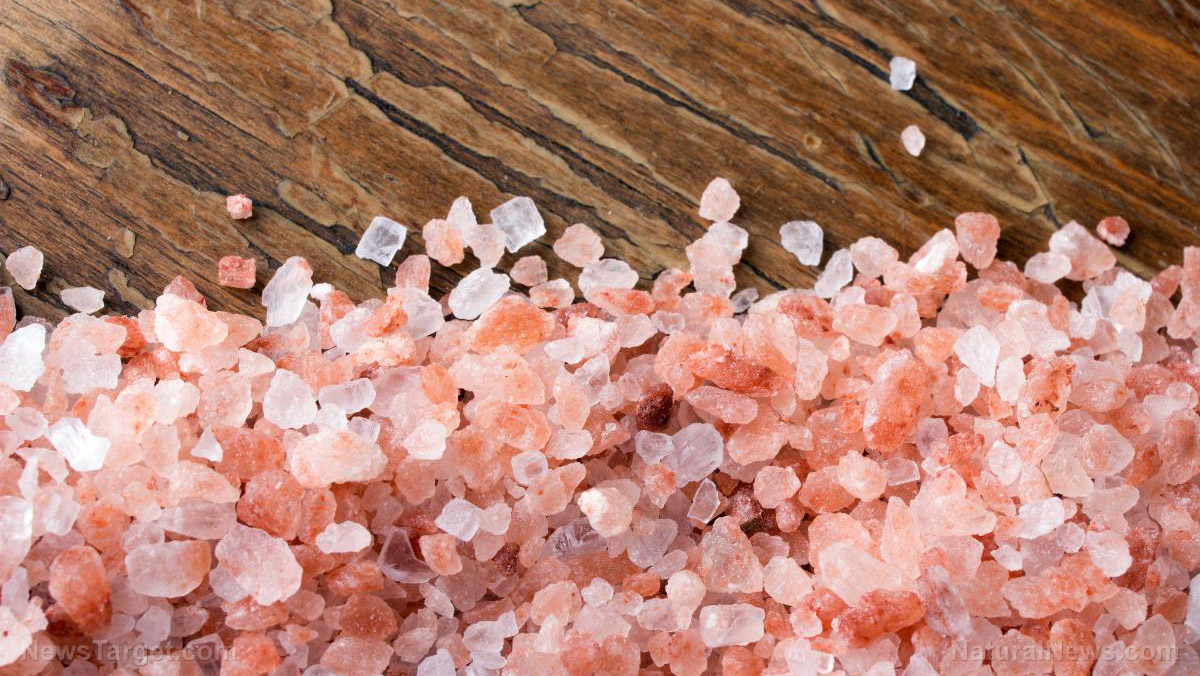Stop halitosis in its tracks with these 8 natural remedies for bad breath
07/06/2020 / By Arsenio Toledo

Bad breath, or halitosis, can be a pretty annoying condition to deal with. According to studies, an estimated 25 percent of the global population is affected by halitosis. Fortunately, home remedies exist that can take care of bad breath. Here are eight natural solutions to your oral health concern. (h/t to MedicalNewsToday.com)
Green tea
Green tea has deodorizing and disinfectant properties that can freshen your breath temporarily. To make green tea’s effects last longer, brew a pot of green tea, pour it into a reusable water bottle and bring it to work. Slowly sip the tea throughout the day. If you can find some mint green tea in your local health food store, all the better, as mint also has deodorizing and disinfectant properties.
Herbal rinse
According to a recent study, an herbal rinse made from cloves, basil and tea tree oil can significantly reduce plaque, gingivitis and the amount of bad breath-causing bacteria in your mouth. Cloves, in particular, are very effective at keeping bad bacteria out of your mouth and preventing cavities.
Cinnamon oil
Cinnamon has antibacterial, antifungal and antiseptic properties that make it effective against oral bacteria that can cause bad breath. Cinnamon oil, in particular, has powerful antimicrobial properties that can even prevent tooth decay.
Tea tree oil rinse
Tea tree oil is another wonderful essential oil that can deal with halitosis. One study even found that tea tree oil can be effective at reducing the amount of bacteria in the mouth that produce volatile sulfur compounds, which are responsible for bad breath.
To make a tea tree oil rinse, mix a drop of tea tree oil with several drops of a carrier oil, such as olive oil, and place this solution in a cup of warm water. Swish some of this solution in your mouth for at least 30 seconds before spitting it out. Repeat this until you’ve used the entire cup.
Strong-smelling herbs and spices
Some herbs and spices contain aromatic compounds that can mask the smell of your breath. Consider mixing several spices to form a powerful deodorizing tea. Some spices you can use are star anise, ginger, fennel seeds, cinnamon, cloves and cardamom. For extra power, add some strong-smelling herbs to your tea such as thyme, spearmint, peppermint or rosemary. (Related: Saponin derived from quinoa shows antibacterial effects against halitosis-related bacteria.)
Probiotic yogurt
Yogurt contains beneficial Lactobacillus bacteria. Not only can these bacteria fight bad breath, but they can also deal with bad bacteria in other parts of your body, such as your gut. Many other probiotic bacteria can improve your breath and even prevent tooth decay.
Kefir
Kefir is a fermented milk drink that can offer a variety of health benefits, including treating halitosis. Kefir, like yogurt, contains plenty of probiotics. These probiotics can stop the excessive growth of bad bacteria in your mouth and gut, which may be causing your bad breath. Creating a healthy environment in your mouth and gut is a sure way of getting rid of halitosis.
Water
Perhaps all you need to deal with halitosis is to drink a glass of water. If your mouth is dry, it can lead to halitosis and other oral health problems. One common cause of dry mouth is dehydration. So the next time you decide to smell your breath, make sure you are well-hydrated and capable of producing healthy amounts of saliva. This can be especially helpful for people who experience “morning breath.”
For the vast majority of halitosis cases, poor oral hygiene and an unhealthy gut microflora are the most common causes. The home remedies listed above can help you maintain good oral health, control bad oral and gut bacteria and get rid of chronic bad breath.
Learn about other ways to keep your oral health in check by visiting OralHealth.news.
Sources include:
Submit a correction >>
Tagged Under:
alternative medicine, aromatic herbs, aromatic spices, Bad Breath, cinnamon, green tea, halitosis, herbal medicine, herbs, kefir, natural cures, natural medicine, oral health, prevention, probiotics, remedies, Tea Tree Oil, yogurt
This article may contain statements that reflect the opinion of the author
RECENT NEWS & ARTICLES
Oralhealth.News is a fact-based public education website published by Oralhealth News Features, LLC.
All content copyright © 2018 by Oralhealth News Features, LLC.
Contact Us with Tips or Corrections
All trademarks, registered trademarks and servicemarks mentioned on this site are the property of their respective owners.




















